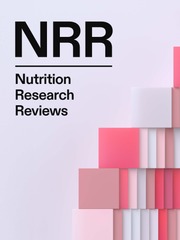No CrossRef data available.
Article contents
Endogenous cannabinoids and appetite
Published online by Cambridge University Press: 14 December 2007
Abstract
Since pre-history, Cannabis sativa has been exploited for its potent and manifold pharmacological actions. Amongst the most renowned of these actions is a tendency to provoke ravenous eating. The characterization of the psychoactive principals in cannabis (exogenous cannabinoids) and, more recently, the discovery of specific brain cannabinoid receptors and their endogenous ligands (endocannabinoids) has stimulated research into the physiological roles of endocannabinoid systems. In this review, we critically discuss evidence from the literature that describe studies on animals and human subjects to support endocannabinoid involvement in the control of appetite. We describe the hyperphagic actions of the exogenous cannabinoid, Δ9-tetrahydrocannabinol, and the endogenous CB1 ligands, anandamide and 2-arachidonylglycerol, and present evidence to support a specific role of endocannabinoid systems in appetitive processes related to the incentive and reward properties of food. A case is made for more comprehensive and systematic analyses of cannabinoid actions on eating, in the anticipation of improved therapies for disorders of appetite and body weight, and a better understanding of the biopsychological processes underlying hunger.
- Type
- Research Article
- Information
- Copyright
- Copyright © CABI Publishing 2001


